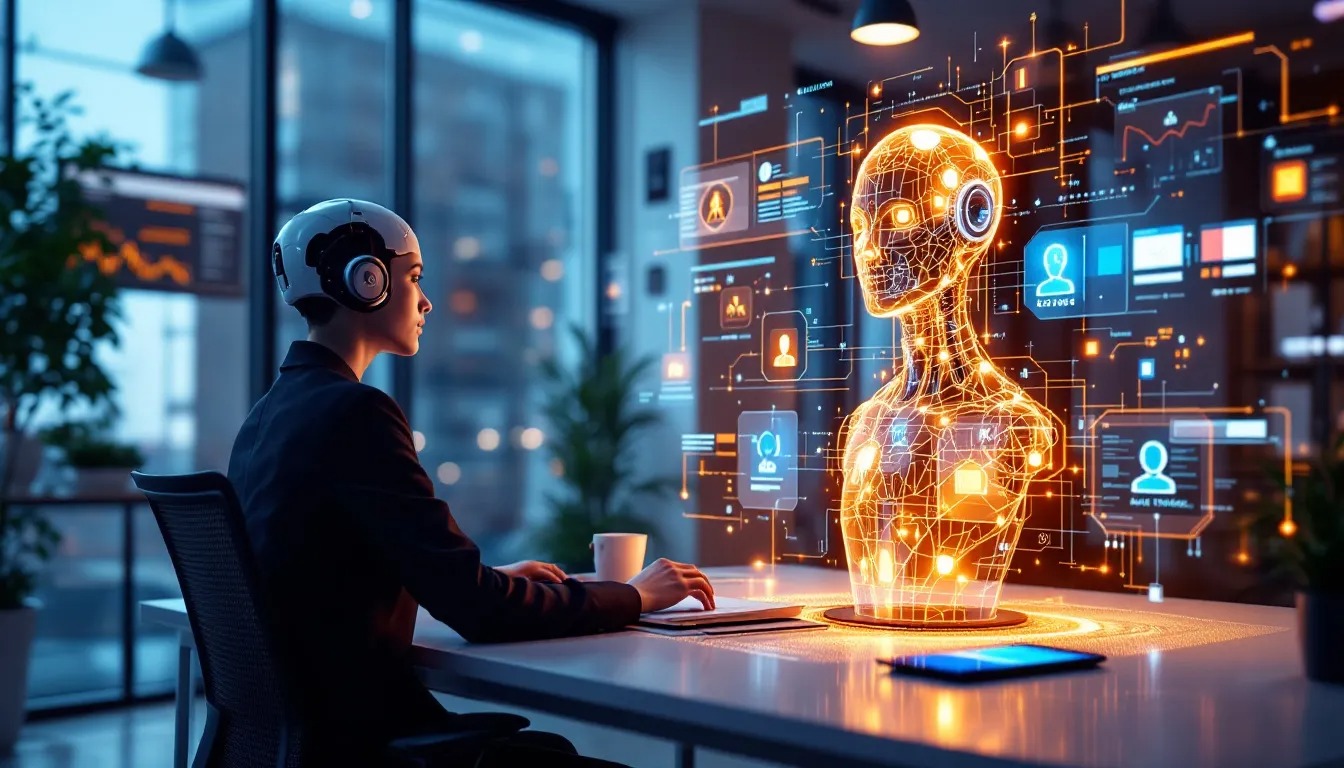Artificial Intelligence (AI) is rapidly transforming the way we interact with technology, and at the forefront of this transformation are AI agents—autonomous systems capable of perceiving their environment, making decisions, and taking actions to achieve specific goals Build AI Workspaces. These agents are not just theoretical constructs; they are increasingly becoming a core part of applications in robotics, finance, healthcare, customer service, and more.
What is an AI Agent?
An AI agent is an entity that can sense its environment through sensors and act upon that environment through actuators. The defining feature of an AI agent is its autonomy—it operates without constant human intervention and can adapt to changing circumstances.
At a basic level, an AI agent follows a perceive-decide-act loop:
-
Perceive: Gather data from the environment.
-
Decide: Analyze the data and determine the best course of action using logic, machine learning, or other AI techniques.
-
Act: Execute actions that bring it closer to its goals.
Types of AI Agents
AI agents can vary greatly in complexity and function. Some common types include:
1. Simple Reflex Agents
These agents act only based on the current perception, ignoring the history of previous inputs. They follow predefined rules (if-then statements) and are common in straightforward applications like thermostats or automated doors.
2. Model-Based Reflex Agents
These agents maintain some internal state to keep track of the environment’s changes over time. This allows for more intelligent decisions in dynamic environments.
3. Goal-Based Agents
Instead of just reacting, these agents are designed to achieve specific goals. They use search and planning algorithms to determine the best path to reach their objectives.
4. Utility-Based Agents
These agents not only aim to achieve goals but also evaluate the desirability of different outcomes, choosing the most optimal one based on a utility function.
5. Learning Agents
These agents can improve their performance over time by learning from their environment and experiences. This includes most machine learning and reinforcement learning systems.
Real-World Applications
-
Customer Support: Virtual assistants like ChatGPT can act as AI agents, handling customer queries, booking appointments, and offering personalized responses.
-
Autonomous Vehicles: Self-driving cars are AI agents that perceive surroundings, make decisions in real time, and control the vehicle.
-
Robotic Process Automation (RPA): In business operations, AI agents can automate repetitive tasks, like processing invoices or managing emails.
-
Healthcare: AI agents assist in diagnosing diseases, personalizing treatment plans, and managing patient records.
Challenges and Considerations
Despite their potential, AI agents come with challenges:
-
Ethical concerns: Decisions made by AI agents must align with human values and ethics.
-
Security risks: Autonomous systems can be vulnerable to attacks or misuse.
-
Transparency: Understanding how decisions are made—especially in complex learning agents—is crucial for trust and accountability.
The Road Ahead
As AI research progresses, agents are becoming more intelligent, context-aware, and collaborative. Future AI agents will likely exhibit general intelligence, working across domains and cooperating with humans in increasingly sophisticated ways. In the long term, the development of multi-agent systems, where multiple AI agents interact to solve complex problems, will open up new possibilities in areas like smart cities, logistics, and disaster response.
